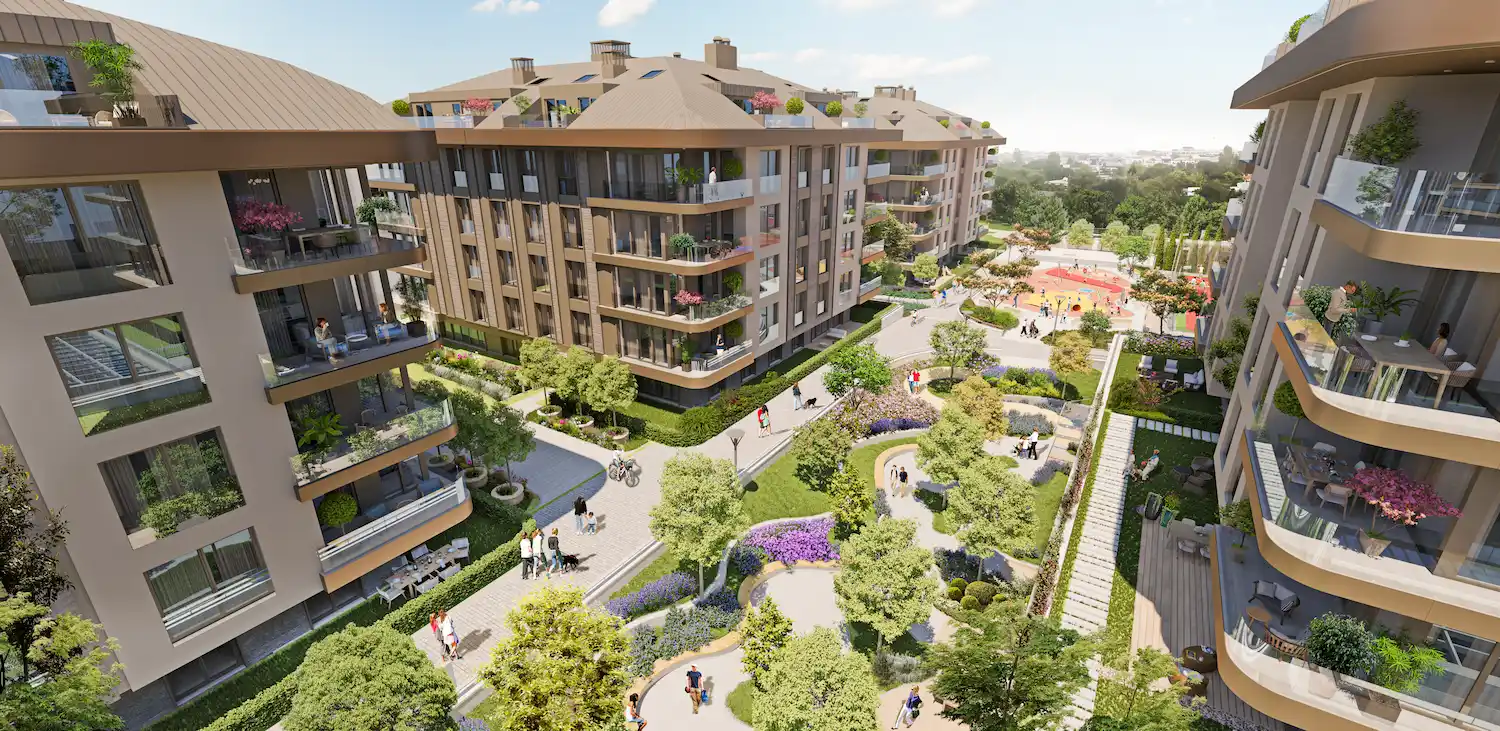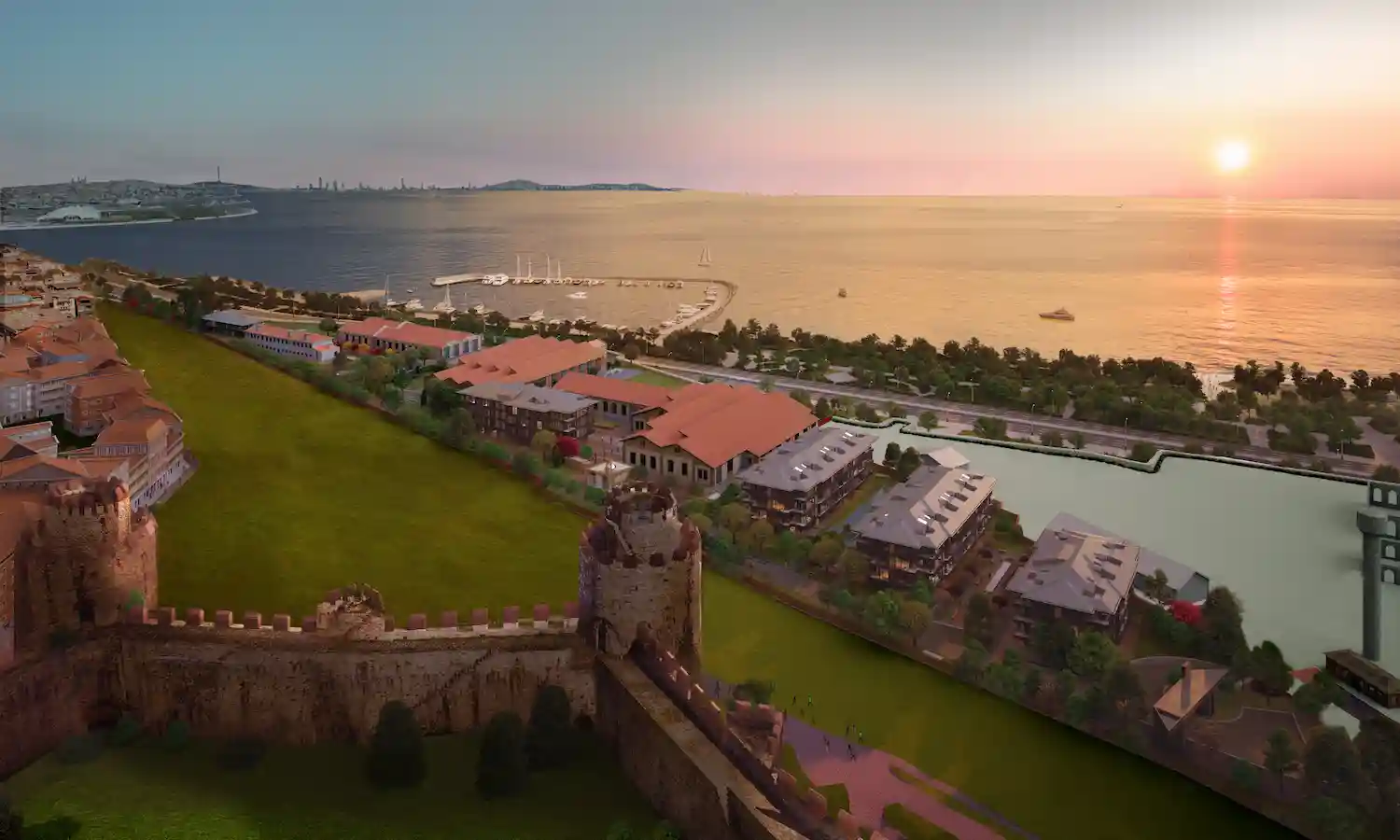Apartment Prices in Turkey 2025: Complete Market Overview
Discover the latest trends in Turkish apartment prices in 2025. Explore city-wise comparisons, foreign investment, rental yields, and expert buyer tips.
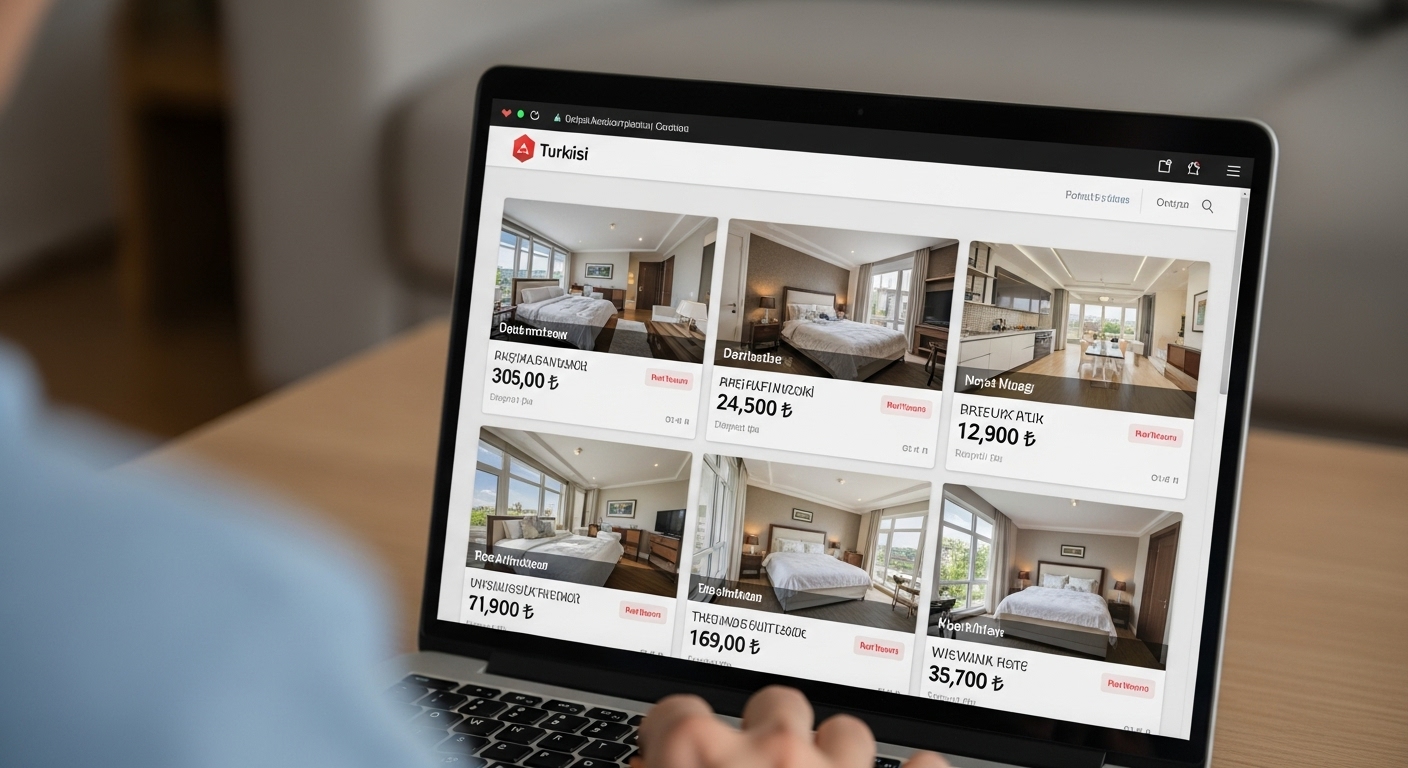
Current State of the Turkish Apartment Market
The Turkish residential property market in 2025 is a complex yet opportunity-rich landscape. While average apartment prices continue to rise in nominal terms across the country, the real value of properties—adjusted for inflation and currency devaluation—presents a more nuanced picture. According to nationwide indicators, housing prices have increased by over 30% in Turkish Lira (TL) annually. However, when adjusted for the prevailing inflation rate, the real growth is modest or even negative in certain regions.
The primary drivers behind this trend include persistent inflation, increased construction costs, and a rapidly depreciating Lira. Domestic buyers face affordability issues, while foreign investors benefit from currency exchange advantages, making Turkey an attractive destination for real estate investment.
Price per Square Meter in Major Cities
To better understand the market dynamics, let’s compare the average apartment prices per square meter in Turkey’s leading cities:
| City | Avg. Price (TL/sqm) | Approx. Price (USD/sqm) | Year-on-Year Change |
|---|---|---|---|
| Istanbul | 61,000 | $1,500–$1,700 | +10% nominal |
| Ankara | 33,000 | $900–$1,000 | +12% nominal |
| Izmir | 45,000 | $1,100–$1,300 | +8% nominal |
| Antalya | 42,000 | $1,000–$1,200 | +7% nominal |
| Bursa | 25,000 | $700–$850 | +6% nominal |
| Trabzon | 22,000 | $600–$750 | +5% nominal |
These numbers represent average pricing and may vary considerably based on district, construction quality, amenities, and proximity to key infrastructure. For a more detailed breakdown of Istanbul-specific apartment pricing and regional trends, you can refer to this in-depth guide.
Apartment Types & Price Ranges
In Turkey, apartments are categorized by their room configuration, such as 1+1 (one bedroom, one living room), 2+1, and so forth. The following table offers a general pricing range for various apartment types:
| Type | Average Size (sqm) | Price Range (USD) | Best Cities for Value |
|---|---|---|---|
| Studio/1+1 | 50–70 | $50,000 – $100,000 | Mersin, Bursa, Esenyurt (Istanbul) |
| 2+1 | 90–115 | $120,000 – $220,000 | Ankara, Antalya, Istanbul suburbs |
| 3+1 | 130–160 | $180,000 – $300,000 | Izmir, Bursa, Beylikdüzü (Istanbul) |
| 4+1 & up | 180–250+ | $300,000 – $700,000+ | Central Istanbul, coastal villas |
These price ranges serve as benchmarks and vary by city and neighborhood. Coastal cities and premium districts like Nişantaşı, Etiler, and Bebek in Istanbul command significantly higher prices.
Factors Influencing Prices
Several critical factors shape the pricing of apartments in Turkey:
Inflation and Monetary Policy: Ongoing high inflation pressures both buyers and developers. Interest rates on mortgages are high, affecting local affordability but creating cash-based opportunities for foreigners.
Currency Volatility: The Turkish Lira’s depreciation against the USD and EUR has increased foreign buyer activity. While this undermines local purchasing power, it enhances Turkey’s value proposition for global investors.
Infrastructure and Location: Proximity to transport networks, business centers, and coastal access significantly impact pricing.
Amenities and Build Quality: Projects with smart home systems, high-end materials, and luxury amenities command premium pricing.
For investors and end-users, balancing these factors is essential to making a well-informed property decision.
Price Comparisons: Turkish Lira vs. US Dollar
When evaluating property investments in Turkey, understanding the impact of currency fluctuations is crucial. The Turkish Lira (TL) has depreciated significantly against the US Dollar (USD) in recent years, and this directly influences real estate affordability and investment returns.
Lira Devaluation and Buyer Impact
In 2020, $1 was equivalent to approximately 7 TL. By mid-2025, that figure has reached around 36 TL. For domestic buyers earning in TL, this has drastically reduced their purchasing power. However, for international investors operating in USD or EUR, this depreciation translates to significant discounts, making Turkish apartments relatively inexpensive by global standards.
Stabilization via USD Pricing
To combat the volatility, many developers and sellers now list properties in USD. This helps stabilize pricing for international buyers and ensures the seller’s margin is not eroded by ongoing currency shifts. In prime markets like Istanbul, Izmir, and Antalya, most high-value properties are denominated directly in foreign currencies, further reinforcing the dual-market system.
Regional Price Highlights
Turkey’s real estate opportunities extend far beyond Istanbul. Several mid-sized cities offer excellent value and strong growth potential:
Bursa
Bursa, historically significant and industrially robust, offers a great balance of affordability and modern living. Apartments here are priced at roughly $700–$850 per square meter. Its proximity to Istanbul via ferry makes it a popular commuter city, especially for families and investors from the Middle East.
Trabzon
On the Black Sea coast, Trabzon attracts buyers seeking tranquil surroundings, cooler climates, and affordability. Prices start around $600/sqm, with sea-view apartments available for $80,000 to $120,000. It's particularly popular among Gulf investors due to cultural similarities and a welcoming atmosphere.
Mersin, Gaziantep, and Konya
Mersin: A coastal city with growing tourism infrastructure. Apartments are affordable and increasingly sought after.
Gaziantep: An economic hub in southeastern Turkey. Prices are lower, but rental yields remain stable.
Konya: A conservative and spiritual center, attracting buyers interested in long-term, stable living environments.
These cities offer a chance to diversify investments beyond traditional hotspots while still tapping into Turkey’s overall growth trajectory.
Rental Market vs. Buying
The Turkish rental market in 2025 is characterized by rapid growth and soaring demand—particularly in urban centers.
Rising Rental Yields
In cities like Istanbul, Ankara, and Antalya, monthly rents have nearly doubled over the past two years. A centrally located 2+1 apartment in Istanbul can now yield between $1,000 to $1,800 per month, depending on location and amenities. Short-term rentals via platforms like Airbnb are especially lucrative in tourist areas, offering yields of 8–10% annually.
Buyer Advantages
Given Turkey’s high mortgage rates, many locals are unable to buy, which increases rental demand. For foreign investors, this creates an ideal scenario: properties can be acquired in USD and rented in TL with high monthly income, adjusted periodically for inflation.
Rent or Buy?
Buy if you plan to stay long-term, are earning in foreign currency, or seek passive rental income.
Rent if your stay is short-term, or if market uncertainty makes ownership less attractive.
Foreign Buyer Influence
Foreign interest has reshaped Turkey’s housing market. From the Middle East to Russia and Europe, overseas buyers are driving demand—especially in areas offering lifestyle benefits or investment-driven incentives.
Key Demographics
Middle East buyers prefer conservative cities like Bursa and Konya.
Russians and Ukrainians are prominent in Antalya and Alanya.
European retirees target coastal towns such as Fethiye and Bodrum.
Policy Impact
Turkey’s Citizenship by Investment program—offering citizenship for real estate purchases over $400,000—has led to an influx of foreign funds. These buyers often opt for luxury or new-build apartments in branded developments.
Districts like Esenyurt and Beylikdüzü in Istanbul, as well as central Antalya and Izmir, have witnessed demographic shifts as foreign communities become more established. These trends are influencing pricing, lifestyle services, and infrastructure development.
Mortgage Rates & Financing
High inflation and interest rates dominate the financing landscape in Turkey. Domestic mortgage rates range from 25% to 35% annually, making traditional financing less attractive for locals.
Developer Installment Plans
To mitigate these rates, developers now offer:
Interest-free installments for 12–36 months
Down payments starting from 30–50%
Direct contracts without bank intermediaries
These plans are particularly popular among international buyers, allowing them to secure a unit without navigating Turkey’s high-interest mortgage system.
Foreign Buyer Financing
Foreigners can access mortgage loans in Turkey, although approval criteria are stricter and LTV (loan-to-value) ratios are lower—usually 50–70%. Documentation requirements include proof of income, credit history, and a valid passport.
Investment Outlook & Forecasts
The investment outlook for Turkish apartments in 2025 is shaped by both domestic resilience and international interest. Despite macroeconomic headwinds, Turkey’s property sector remains a high-potential environment for medium- to long-term investors.
Short-Term Outlook
In the short term, real estate growth is driven by inflationary pressures, rising construction costs, and foreign demand. While TL-denominated price tags will likely continue climbing, gains in hard currency (USD/EUR) may remain moderate. That said, high rental yields—particularly in urban centers and tourist destinations—offer excellent cash-flow opportunities for investors.
Mid to Long-Term Potential
Over a 5–10 year horizon, Turkey’s urban expansion, youthful population, and major infrastructure investments position the country for continued real estate appreciation. Projects such as Istanbul’s new financial district, the canal megaproject, and expanding metro lines all promise long-term capital gains, especially for properties near these developments.
Foreign-friendly policies, including real estate-backed citizenship programs and tax benefits, enhance Turkey's appeal. As political and economic reforms stabilize, foreign investment is expected to increase, further boosting property values in key districts.
Tips for Homebuyers in Turkey
Buying an apartment in Turkey, while rewarding, requires careful due diligence. Here are expert-backed tips for securing the best deals:
Prioritize Location: Proximity to transport, schools, and hospitals enhances both resale value and rental potential.
Request Title Verification (Tapu Check): Always verify ownership status and whether the property has any debts or liens.
Use a Local Lawyer: Legal representation is essential to navigate zoning, tax, and title issues.
Understand All Costs: Buyers should factor in taxes (4% title deed fee), appraisal charges, legal costs, and potential maintenance fees.
Work With Licensed Agents: Reputable agents can provide access to off-market listings, negotiation support, and legal clarity.
Negotiate Payment Terms: Especially with new developments, many sellers offer flexible installment plans or discounts for lump-sum payments.
Inspect Before You Buy: Virtual tours are useful, but physical inspection is vital for checking quality, layout, and neighborhood vibe.
Review Rental Rules: Especially if buying for Airbnb or short-term rentals—local rules vary by city and district.
Check Earthquake Compliance: Turkey lies in a seismic zone. Newer buildings must meet modern safety codes.
Consult Real Market Trends: Don’t rely only on advertised prices—look into actual sales data, rental yields, and long-term projections. For updated district-level insights in Istanbul, explore this expert real estate trends guide.
Legal & Citizenship Insights
Foreigners can own freehold property in Turkey without major restrictions, except in designated military or security zones. Ownership grants full legal rights, including the ability to rent, sell, or transfer property.
Residency & Citizenship Pathways
Residency: Buying property worth at least $75,000 qualifies buyers for a renewable one-year residence permit.
Citizenship: Investing $400,000 or more in Turkish real estate allows buyers and their families to apply for full citizenship, provided the property is not sold for at least three years.
This has become a major pull factor for investors from countries with limited visa access or political instability. Turkish citizenship also grants access to free healthcare, education, and visa-free travel to over 110 countries.
Historical Market Overview
To understand where the Turkish property market is headed, it’s vital to examine where it’s been:
2000–2010: Urban Growth Phase
Major cities like Istanbul and Ankara experienced rapid growth due to urban migration, infrastructure upgrades, and population expansion.
2010–2016: Construction Boom
Government incentives and low-interest loans fueled a housing boom. Prices appreciated strongly in TL and USD terms.
2017–2021: Economic Turbulence
The Lira’s sharp depreciation began to affect affordability. Though prices rose in local currency, real USD values declined, creating a unique opportunity for foreign investors.
2022–2025: Inflation & Resilience
Despite ongoing inflation, property values have remained strong in USD for high-demand areas. Regulatory adjustments and increasing foreign demand have added new layers to the market's resilience.
Conclusion
The Turkish apartment market in 2025 is a tale of contrasts—between soaring nominal prices and real-term value, between local affordability issues and international investment opportunities. Whether you're a foreign investor seeking strong returns or a family looking for a home in a dynamic and culturally rich country, Turkey has a place for you.
With favorable property laws, growing infrastructure, and one of the most attractive citizenship-by-investment programs globally, Turkey continues to position itself as a competitive and rewarding real estate destination.
Due diligence, a sound investment strategy, and local expertise are key to navigating this vibrant market. And with the right guidance, buying an apartment in Turkey can be more than just a transaction—it can be the gateway to lifestyle, opportunity, and long-term value.
FAQs
1. Can foreigners buy apartments in Turkey?
Yes, foreigners can buy freehold apartments across most of Turkey. Certain zones (like military or strategic areas) are restricted.
2. What’s the minimum investment required for Turkish citizenship?
You must invest at least $400,000 in real estate and retain the property for three years to qualify for Turkish citizenship.
3. Is financing available for foreign buyers?
Yes, some banks and developers offer financing to foreigners. Loan-to-value ratios are typically around 50–70%, with stricter documentation requirements.
4. Which Turkish cities offer the best ROI for apartments?
Istanbul, Antalya, Izmir, and Bursa rank among the best for capital growth and rental yield. Regional cities like Trabzon and Mersin offer emerging opportunities.
5. Are property prices expected to rise further in Turkey?
Yes, due to ongoing urbanization, infrastructure expansion, and foreign demand, long-term property appreciation is likely—especially in top-tier cities and growth corridors.
Have Question Or Suggestion ?
Please Share Your Thought, To Make It Real
.webp)
.webp)
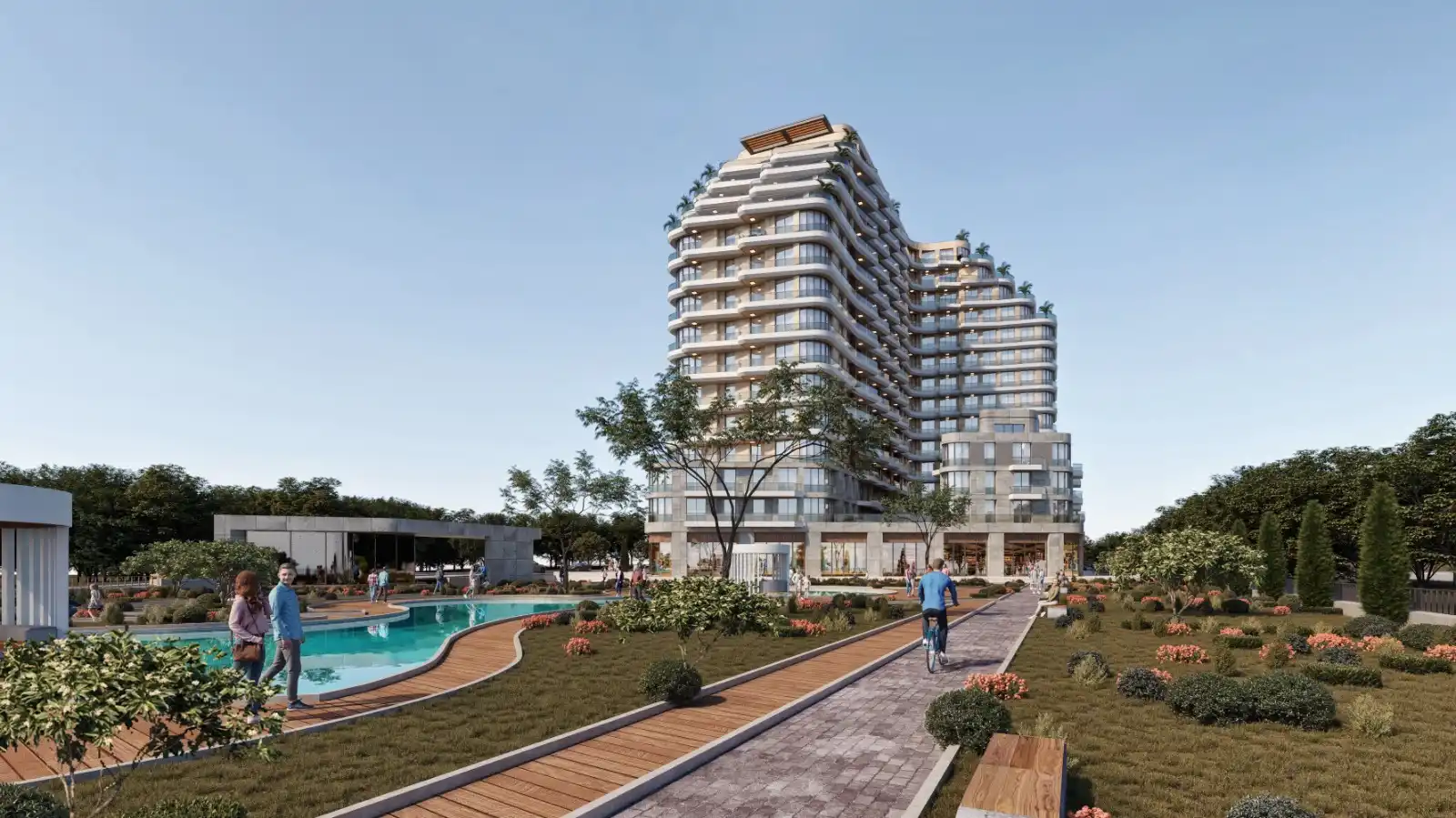
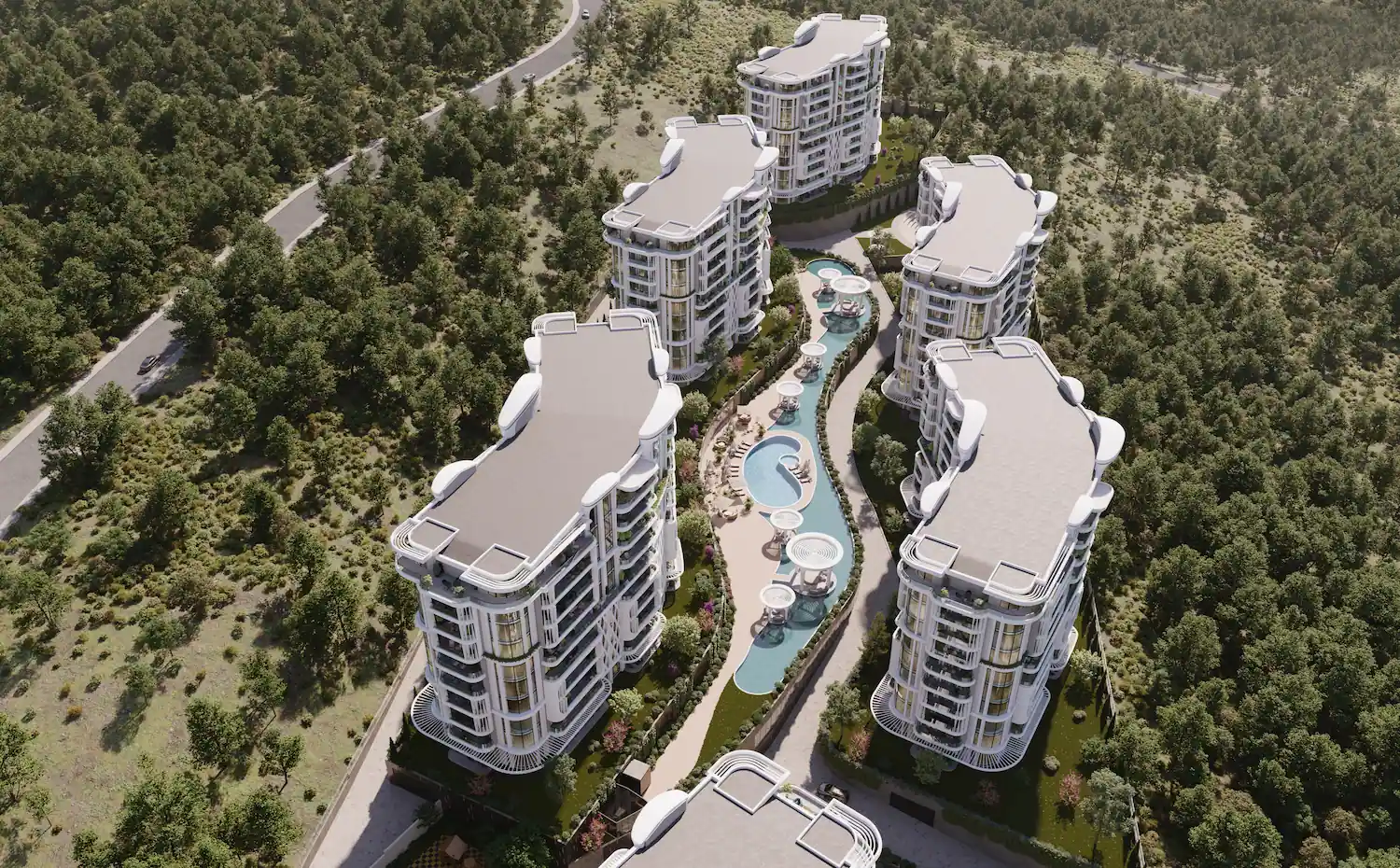
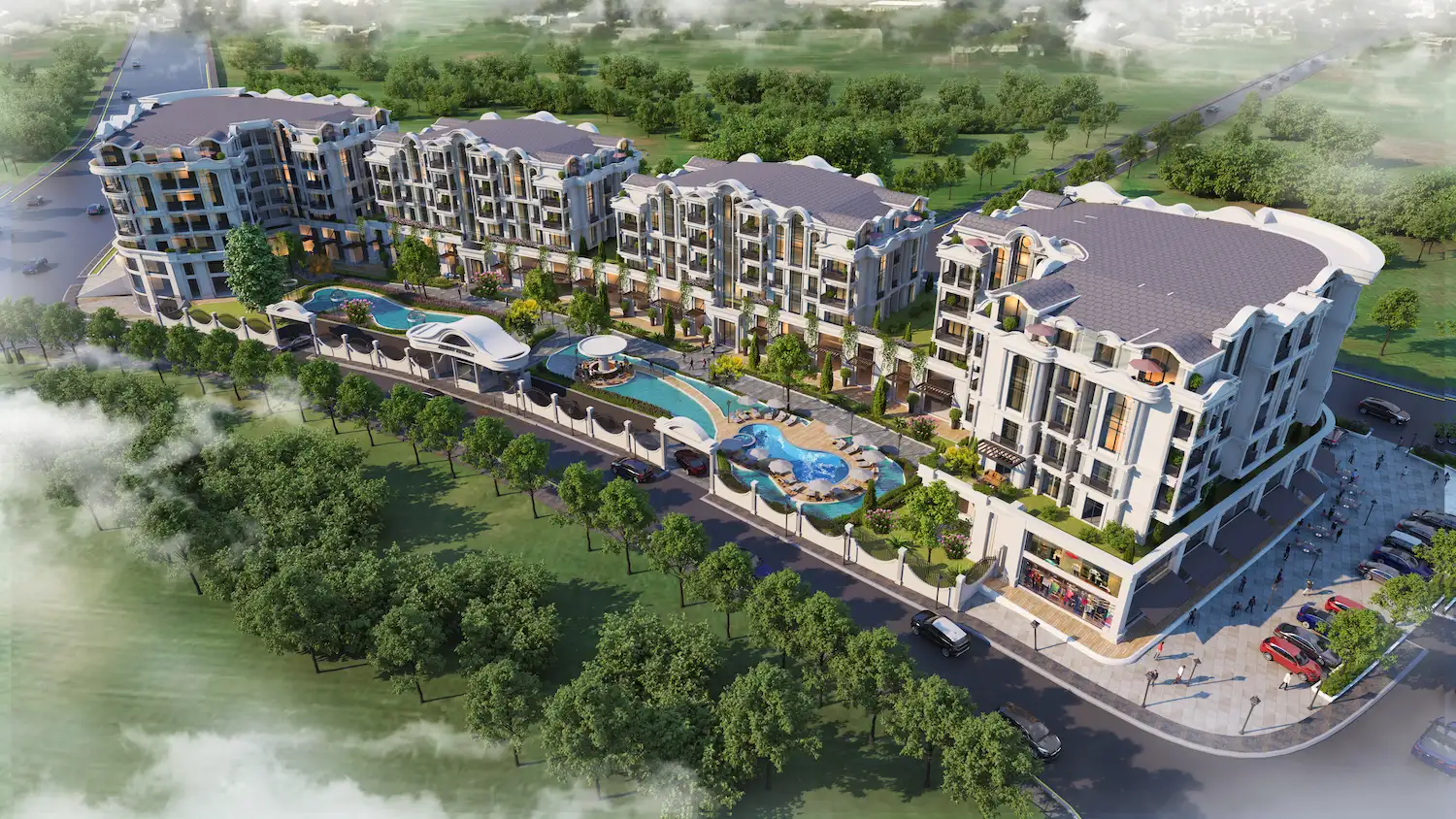
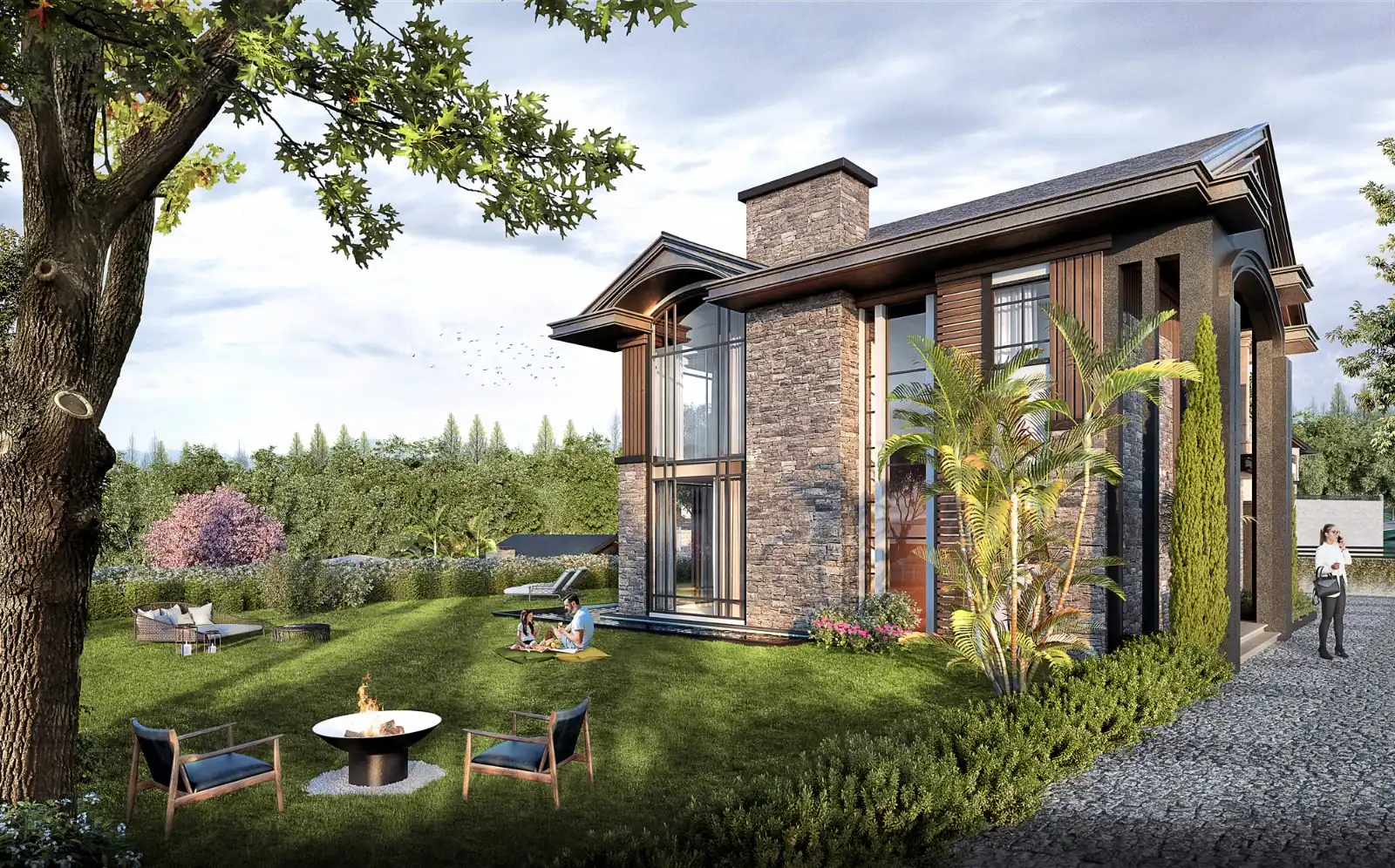
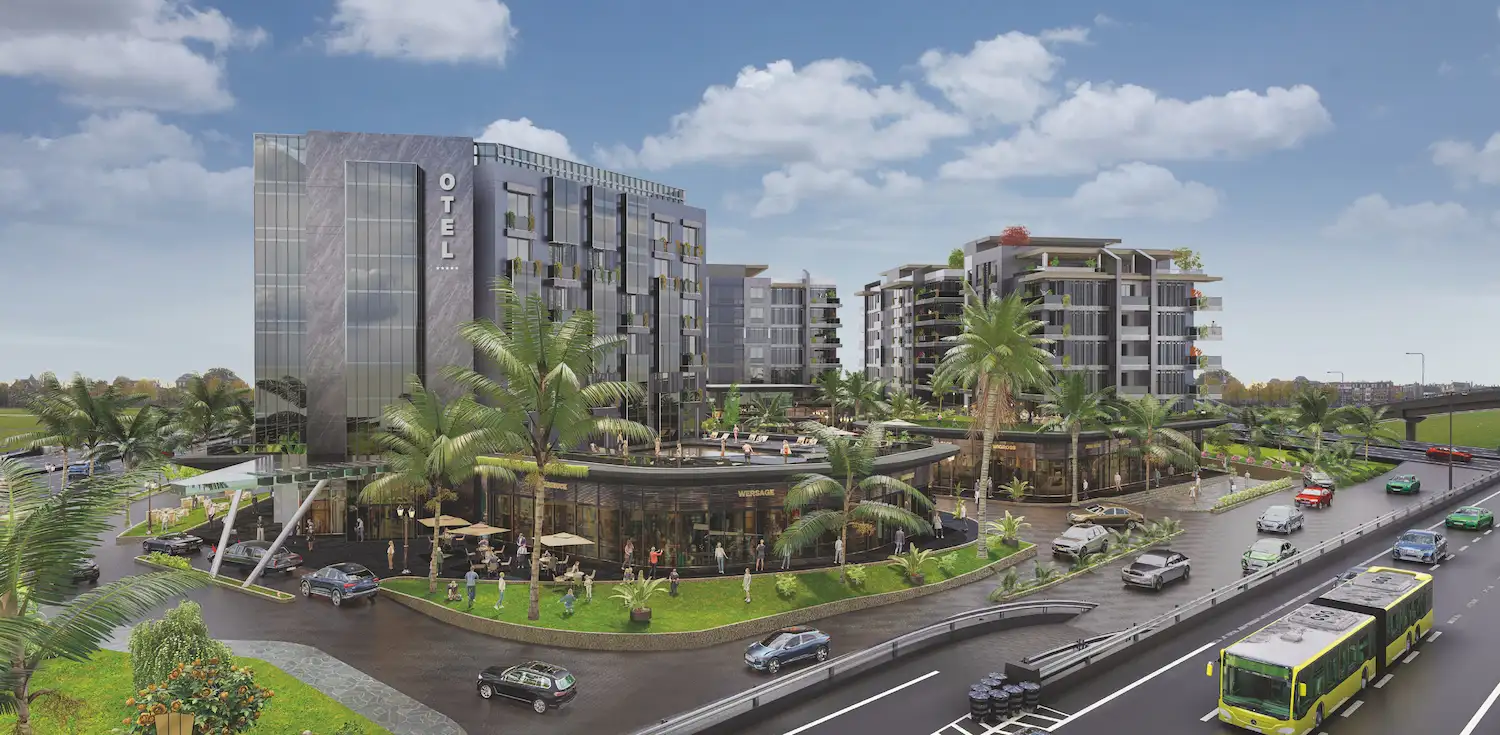
.webp)
